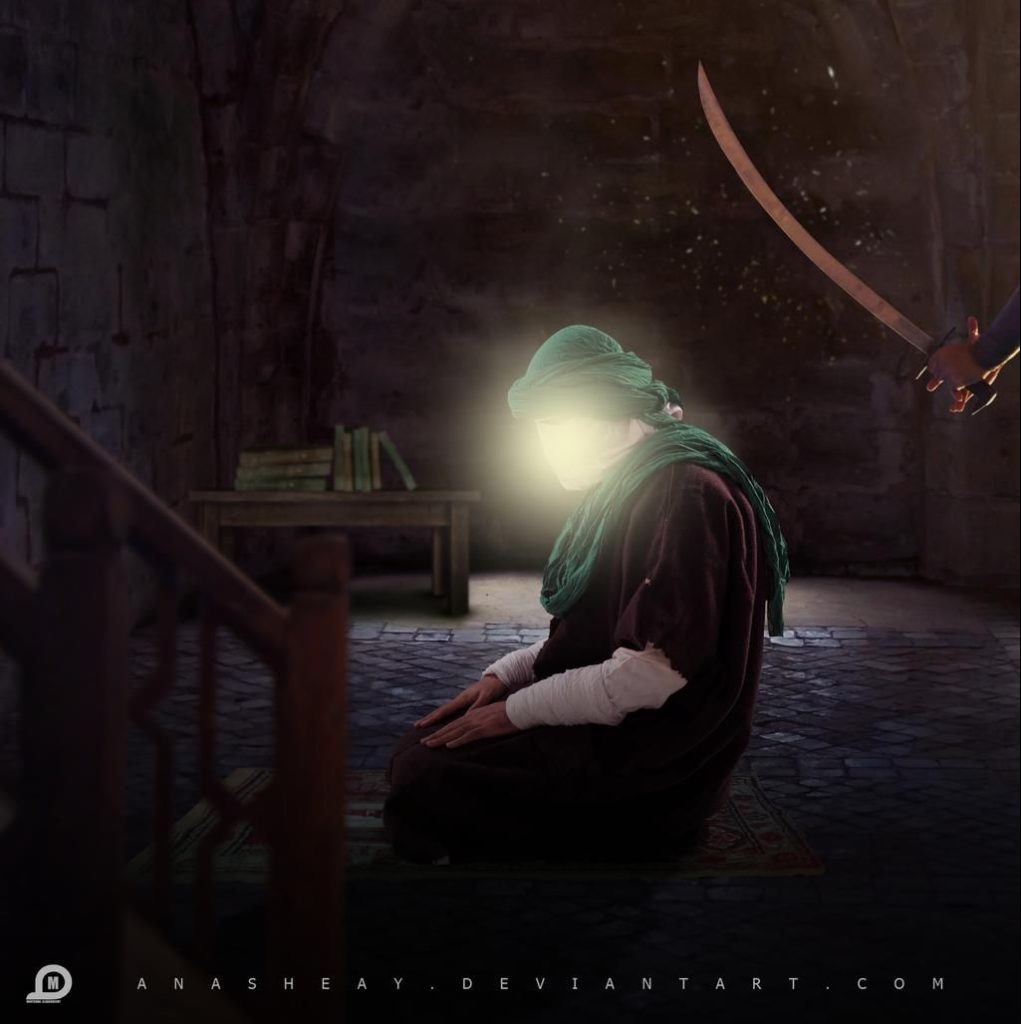
Martyrdom Anniversary of Imam Ali (PBUH)

Imam Ali’s martyrdom as the First Muslim, an intimate associate of the Holy Prophet of Islam (PBUH&HF) in his life and holy Islamic mission, the Immediate Successor to the Holy Prophet of Islam (PBUH&HF) and the First Holy Immaculate Imam of the Shi’a Muslims.
On the 19th day of Ramadan in 661, Imam Ali (PBUH) was struck on the head with a sword as he bent to pray at the Great Mosque in Kufa, Iraq. Two days later, he passed away[1].
More than 1,400 years later, Imam Ali’s martyrdom is remembered by Shiite Muslims who mourn for him as if it happened yesterday. They revere Ali as a hero, a saint, and a philosopher, and as a man deprived of his destiny: after waiting 25 years to rule, he was killed four years after he got the chance.
In Iran, with a Shiite majority, commemorating Imam Ali (PBUH) ‘s martyrdom — and that of his martyred son, Imam Hussain — offers an opportunity to renew religious identity. Therefore, Imam Ali (PBUH) ‘s mourning ceremonies are taken very seriously indeed.
During the three days that passed between his stabbing and demise (19 and 21 Ramadan), Shiites hold night vigils. Black-clad mourners from different social backgrounds and age groups congregate in mosques, places of worship and religious sites nationwide, specially his holy Shrine in Najaf, Iraq, attending mourning rituals for their first Imam.
During the ceremonies held for Imam Ali’s martyrdom, poems are recited and sermons are delivered in his honor since he is one of the most revered figures of Shia Islam.
On the 21st day of Ramadan, the day of Imam Ali (PBUH) ‘s demise, virtually every store and business in Tehran is closed. On the evening news, the anchors wear black. Most programming is pre-empted for prayers and plays about the life of Ali, including one that dramatized his service to the poor.
Newspapers are full of poems and essays paying tribute to Imam Ali (PBUH). There are also banners celebrating Imam Ali (PBUH) ’s spirit, hung throughout the city. Men and women gather to pray and to mourn.
The night before his demise is believed to be one of the three holy Qadr nights (the Nights of Destiny), which represent an unparalleled opportunity for Muslims to dedicate much of their time to praying.
Throughout the Night of Destiny, Shia Muslims recite the holy Qu’ran, hold vigils until dawn, and pray to God while mourning for the martyrdom of their first Imam.
[1]A Restatement of the History of Islam and Muslims by Sayyid Ali Asghar Razwy